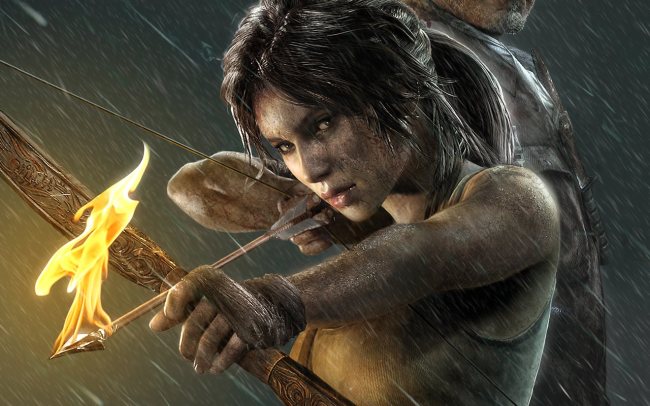This post has not been edited by the GamesBeat staff. Opinions by GamesBeat community writers do not necessarily reflect those of the staff.

So, video game reboots are a big thing now, right? But rebooting a long-lasting franchise is in no way a new concept. Lately, though, the reboot has been bursting onto the scene more often than ever, with the likes of Tomb Raider, DmC: Devil May Cry, and the recently announced Thief (pictured above) as well as many others. The idea behind a reboot is to revive a series that is considered outdated and revitalize the community’s interest in it. Old series of games are taken back to the drawing board as developers hold onto the aspects of their choosing while throwing out those that they feel may not work so well in the current generation of gaming.
It seems as though the concept of a reboot has been growing more and more popular with developers, and we have been witnessing an increase in quantity in recent years that is bound to continue for some time. I understand the intentions of the concept, but we must consider an unintentional rather negative side effect to these constant reboots. No, I’m not talking about disappointing fans by making adjustments to a series’ canon or mythos or both. The issue I have is that if developers are putting so much focus and effort into rehashing these old titles, they may become distracted from making any true progress.

Above: Not my opinion entirely but to the point.
Allow me to elaborate on this. These old titles that developers often wish to reboot are just that: old. While this is the very reason that a series would be ideal for a reboot, it is also what makes the concept counterproductive. The game has already been done; we’ve seen it all before. Sure, you could take it and upgrade it to fit in properly with a new generation of gaming, but wouldn’t it be more productive to concentrate on giving the gaming universe some new and improved ideas featuring new adventures with new faces?
Many fans and critics have shared complaints on the abundance of video game sequels released year after year. Releasing a reboot is not much different, and in the way, we are still missing out on any truly new ideas. The fact is that even if a reboot is shedding new light on an old concept, developers are still simply rehashing what’s already been done. Think about it this way: Are video game reboots any different from the continuing onslaught of movie remakes?
For example, while the recently released Tomb Raider reboot was a fantastic game and quite enjoyable, it did not offer much in the department of new concepts and ideas. Yes it was a new installment to the Tomb Raider series as well as a new and improved storyline and control scheme. But this still does not present us with anything we haven’t seen before. We are still playing as a female archaeologist in search of ancient treasures throughout the ruins of ancient civilizations.
It may have been done in a slightly different fashion, but the old base concept is still there, and it’s worn out. The original Tomb Raider series was great for its time, but that time has passed. The gaming universe has had this archetype before, and now with the existence of similar games originating after the time of Tomb Raider, it’s reaching a state of repetitiveness. By putting so much effort into rehashing titles of past generations, such as in this situation, the industry is holding itself back.
Now, just because I see reboots from this perspective, in no way does that make any of them bad games. Still, I feel as though the industry may be wasting its time dwelling on the past when it could be putting more effort into creating a new series. As enjoyable as some of these reboots have managed to be, they are still rehashes of things that have already been done. Many classic titles of the past are great games, but they have passed their prime time.
Developers, give us some new stories and new adventures with new characters. Put us in control of new methods of gameplay. Focus on the future.

